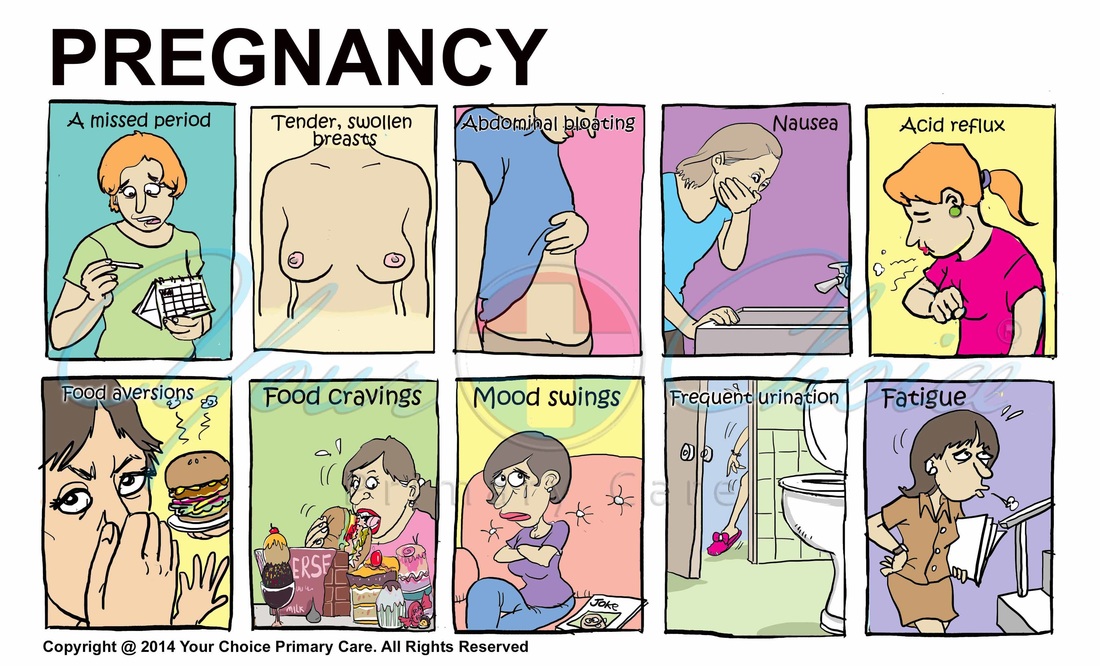Common symptoms and discomforts of pregnancy include:
- A missed period
- Tender, swollen breasts
- Abdominal bloating
- Nausea
- Acid reflux
- Food aversions
- Food cravings
- Mood swings
- Frequent urination
- Fatigue
First trimester
The first few months of pregnancy — the first trimester — are marked by rapid changes for both you and your baby.
For you, first trimester physical changes might include breast tenderness, fatigue and nausea. Your emotions might range from excitement to anxiety. For your baby, the first trimester is a time of rapid growth and development. Your baby's brain, spinal cord and other organs begin to form, and your baby's heart begins to beat. Your baby's fingers and toes even begin to take shape.
If you're in your first trimester, make an appointment with your health care provider to begin prenatal care. You'll find out what to expect during the first trimester and beyond. What you learn can help you take the best care of yourself and your baby.
Second trimester
During the second trimester of pregnancy — from months four to six — you might feel better than you did at first. Now's the time to enjoy your pregnancy!
During the second trimester, your baby might begin to seem more real. Second trimester signs and symptoms might include larger breasts, a growing belly and skin changes. For your baby, the second trimester often marks the ability to move and hear. By week 20, you'll be halfway into your pregnancy.
Regular visits to your health care provider remain important during the second trimester. Tell your health care provider what's on your mind, even if it seems silly or unimportant.
Third trimester
The last few months of pregnancy — the third trimester — can be physically and emotionally challenging. Third trimester signs and symptoms might include backaches, swollen ankles and mounting anxiety.
During the third trimester, your baby will likely open his or her eyes and pack on the pounds. This rapid growth might lead to more pronounced fetal movements. At the start of week 39 your baby is considered full term.
During the third trimester, you'll continue to meet with your health care provider regularly. He or she might check the baby's position and assess cervical changes. As your due date approaches, continue to ask questions. Knowing what to expect during the third trimester can help you during the final stages of pregnancy.


